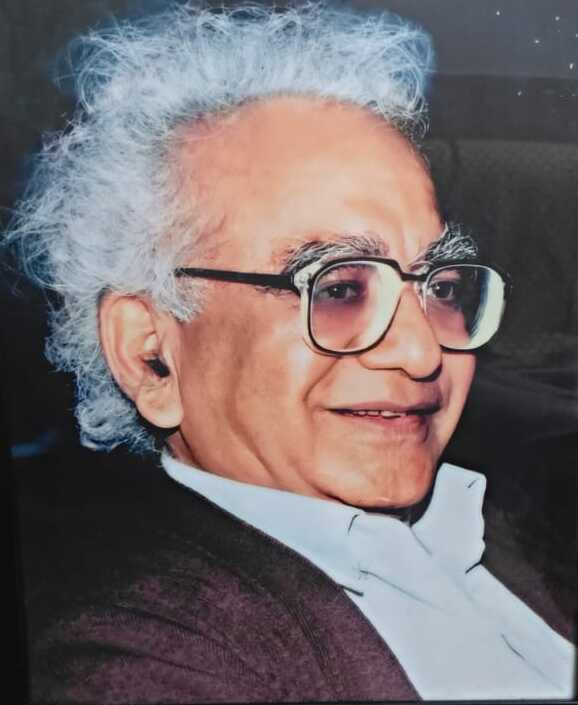About
Early Life and Education
Dr. V.R. Gaikwad was born in India and pursued higher education in anthropology. He obtained his Ph.D. in Anthropology from the University of Saugar, India, in 1962, following a Master’s degree (M.A.) in Anthropology from the same university in 1959. He completed his B.A. in Economics, Political Science, and Literature from the University of Jabalpur in 1957.
Dr. Gaikwad’s career in academia and research spanned over three decades at the Indian Institute of Management Ahmedabad (IIMA), where he served as a Professor from 1970 to 1993. During his tenure, he held several key positions, including:
- State Bank of India Chair Professor (1985-1992)
- Chairman, Research & Publications (1984-1986)
- Chairman, Centre for Management in Agriculture (CMA) (1978-1980)
- Chairman, Management Development Programmes (MDP) (1976-1979)
- Acting Director, IIMA (1983, 1985)
Before joining IIMA, Dr. Gaikwad served as the Deputy Director at the National Institute of Community (now Rural) Development, Hyderabad (1964-1970), and as a Lecturer at the Institute of Social Science, Agra University (1963-1964). He was also associated with FAO (Rome) and worked in Indonesia (1981-1982).

Contributions to Research and Consultancy
Dr. Gaikwad was extensively involved in research, policy planning, and consultancy at both national and international levels. He collaborated with government agencies, international organizations, and private enterprises on a variety of projects related to rural development, cooperative enterprises, post-harvest management, environmental conservation, and institutional management.
After retiring from IIMA in 1993, he continued his association with the institute as a private consultant (1994-present), working on projects such as:
- Perspective Plan for NAFED (1993-1995)
- Social & Environmental Impact of National Parks (UNRISD, Geneva) (1993-1995)
- Evaluation of Training Programs (MANAGE, Hyderabad) (2001-2002, ongoing)
- Peer Review of NIAM, Jaipur (2000-2003)
- Post-Harvest Management & Value Addition Study (GOI) (2001-2003, ongoing)
Areas of Expertise
Dr. Gaikwad’s expertise encompassed various fields, including:
- Rural & Agricultural Development: Cooperative management, agricultural extension, post-harvest management, value addition.
- Environmental Conservation & Sustainability: Social forestry, protected area management, impact assessment, sustainable development.
- Institutional & Organizational Development: Reorganization of institutions, governance reforms, entrepreneurship promotion.
- Human Resource Development (HRD): Capacity-building programs, executive training, skill development initiatives.
Major Clients and Collaborations
International Organizations
Dr. Gaikwad worked with several leading international organizations, including:
- World Bank (1994)
- United Nations Research Institute for Social Development (UNRISD, Geneva) (1993-1994)
- International Cooperative Alliance (ICA) (1986-1993)
- International Labour Organization (ILO, Delhi & Geneva) (1980, 1989-1990)
- United Nations Educational, Scientific & Cultural Organization (UNESCO) (1979, 1987)
- International Development Research Centre (IDRC) (1986)
- Food & Agriculture Organization (FAO, Rome) (1978-1985)
- United Nations Economic and Social Commission for Asia and the Pacific (ESCAP) (1979-1980)
- CARE India, UNICEF, Ford Foundation (1971-1978)
National Organizations and Government Agencies
- NAFED, National Cooperative Development Council (NCDC), Planning Commission (GOI), Ministry of Agriculture (GOI), Indian Council of Agricultural Research (ICAR), National Institute of Agricultural Marketing (NIAM), MANAGE Hyderabad.
- State Governments (Madhya Pradesh, Rajasthan, Gujarat, Andhra Pradesh).
- Bhabha Atomic Research Centre, North East Council, Indian Council for Social Science Research (ICSSR).
- Public & Private Sector Enterprises, Agri-Business Firms, and Cooperative Organizations.
Publications and Research Contributions
Dr. Gaikwad authored 15 books, 40 research papers, and 80 case studies, covering topics such as rural development, cooperative management, environmental conservation, and policy evaluation. Some of his notable works include:
- The Anglo-Indians: A Study in Emotional & Cultural Integration (1967)
- Panchayati Raj and Bureaucracy (1969)
- Guide to Management of Small Farmers’ Cooperatives (FAO, Rome, 1982)
- Managing Paddy-Rice Business of Small Farmers (1986)
- Planning Rural Development Projects in Laos (ILO, 1990)
- EC-1992 and Beyond (Oxford & IBH, 1994)
Global Experience and International Exposure
Dr. Gaikwad traveled extensively for academic collaborations, research projects, and policy advisory roles. He visited several countries, including:
- United Kingdom, United States, Italy, Japan, Indonesia, Thailand, Malaysia, Sri Lanka, Nepal, Bangladesh, Hong Kong, Philippines, South Korea, Afghanistan, Laos, and Hungary.
Post-Retirement Contributions
Following his retirement, Dr. Gaikwad remained actively engaged in consultancy and research. He continued to work with IIMA and other institutions on various policy and institutional development projects. Additionally, he taught Procurement Management for Agri-Business at various MBA programs for 14 years.
Legacy and Impact
Dr. V.R. Gaikwad’s contributions significantly influenced policy frameworks, rural development models, cooperative enterprises, and agricultural management practices in India and internationally. His research, training programs, and consultancy projects played a crucial role in strengthening institutional capacities, guiding policy reforms, and advancing sustainable rural development initiatives.